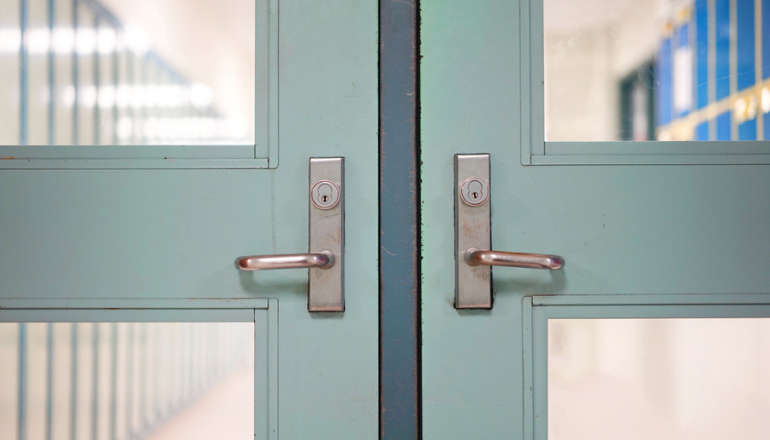
The French government has collapsed after Prime Minister Michel Barnier lost a vote of no confidence.
It follows his decision to use special powers to force a social security budget through the lower house of parliament without a final vote after a last-minute concession was not enough to win support from the far-right National Rally (RN).
In the end, far-right and left-wing politicians joined forces to back a no-confidence motion in Mr Barnier and his government. The National Assembly approved the motion by 331 votes. A minimum of 288 were needed.
The outcome marks the first time a French government has lost a confidence vote since 1962.
Political crisis in France: Follow latest updates
Mr Barnier, formerly the EU's chief Brexit negotiator, is expected to tender his resignation and that of his government to President Emmanuel Macron.
The 73-year-old was appointed in September and will become the shortest-serving prime minister in France's modern Republic.
Marine Le Pen, president of the National Rally party, said after the vote that she is not calling for Mr Macron's resignation but "pressure is piling up".
Mr Macron, on his way back from a presidential visit to Saudi Arabia, said discussions about him potentially resigning were "make-believe politics", according to French media reports.
He is due to address the people of France on Thursday evening following the result of the no-confidence vote.
The outcome means he will need to appoint a new prime minister for the second time after July's legislative elections led to a deeply-divided parliament.
The National Assembly, France's lower house of parliament, is fractured, with no single party holding a majority. It comprises three major blocs: Mr Macron's centrist allies; the left-wing coalition New Popular Front; and the far-right National Rally.
The escalating political crisis in France has threatened to send the eurozone's second-biggest economy into uncertain territory.
It comes at a time of tension in Europe, with the imminent return of Donald Trump to the White House and the war in Ukraine continuing to drag on.
Read more from Sky News:
Top healthcare boss shot dead in 'targeted attack'
British investigators smash Russian money-laundering networks
Why did the vote take place?
The vote of no confidence in Mr Barnier rose from fierce opposition to his proposed budget for 2025.
This week, he decided to use special powers to push through his budget, having failed to receive support from MPs.
That decision angered the National Rally party and the left-wing alliance New Popular Front (NFP), both of which tabled no-confidence motions in him.
France is struggling to tame a massive budget deficit which is projected to exceed 6% of national output this year.
Mr Barnier's budget had sought to reduce the fiscal deficit with €60bn (£49.7bn) in tax hikes and spending cuts.
It aimed to cut the deficit down to 5% next year.
France under pressure from EU
In his final speech before the vote, Mr Barnier said: "As this mission may soon come to an end, I can tell you that it will remain an honour for me to have served France and the French with dignity.
"This no-confidence motion... will make everything more serious and more difficult. That's what I'm sure of."
France is under pressure from the European Union to reduce its colossal debt.
The country's deficit is estimated to rise to 7% next year without drastic adjustments.
The political instability could push up French interest rates, deepening the debt even further.

(c) Sky News 2024: French government collapses as Prime Minister Michel Barnier loses no-confidence vote

 Video shows masked man pull gun on UnitedHealthcare boss Brian Thompson moments before fatal shooting in New York City
Video shows masked man pull gun on UnitedHealthcare boss Brian Thompson moments before fatal shooting in New York City
 Sir Keir Starmer to unveil 'plan for change' - what is it and why now?
Sir Keir Starmer to unveil 'plan for change' - what is it and why now?
 Dozens of nations hit by 'China' hack - as Americans warned to stop sending texts
Dozens of nations hit by 'China' hack - as Americans warned to stop sending texts
 World entering a new nuclear age, head of armed forces warns
World entering a new nuclear age, head of armed forces warns
 Georgia: Crackdown begins on anti-government protesters
Georgia: Crackdown begins on anti-government protesters



 Isle Of Wight Council Recommends Consideration Of School Closures To Address Surplus Places
Isle Of Wight Council Recommends Consideration Of School Closures To Address Surplus Places
 Isle Of Wight Festival Wins Prestigious National Accolade
Isle Of Wight Festival Wins Prestigious National Accolade
 Wightlink Encourages Community Organisations To Think Green This Winter
Wightlink Encourages Community Organisations To Think Green This Winter
 Island Community Centres Awarded Share Of £30,000
Island Community Centres Awarded Share Of £30,000